When Dutch traders introduced the Typica cultivar to Indonesia in the 17th century, coffee production underwent a rapid expansion. This was aided by a particularly favourable microclimate near the equator and mountainous regions across its many islands. But in the late 1880s, disaster struck when coffee leaf rust swept through large swathes of the country; virtually wiping out the varietal with the exception of the higher slopes of Sumatra. In response, the hardier Robusta coffee plant species was cultivated in much of the low-lying regions and the species flourished to account for nearly three-quarters of the Indonesia’s total coffee total coffee production today.
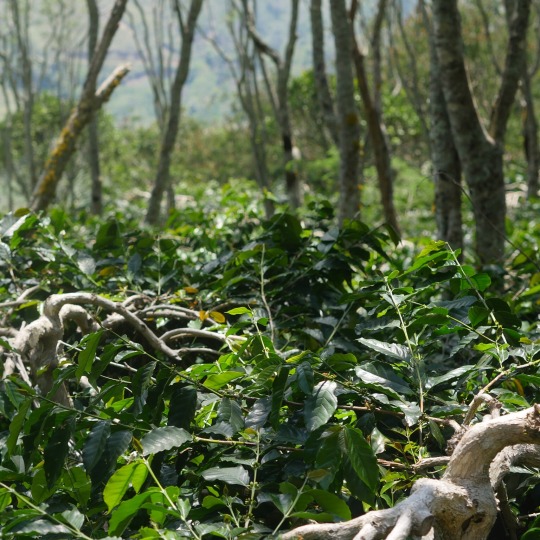
However, standing tall amongst the twenty or so varieties that have been introduced over the centuries and are still grown commercially in the country, there is one varietal that can be described as uniquely tied to Indonesia’s rich coffee heritage. Discovered on the island of Timor in the 1940s, Hibrido de Timor – or more affectionately known as TimTim – is a natural interspecies cross between c.arabica and c.canephora (Robusta).
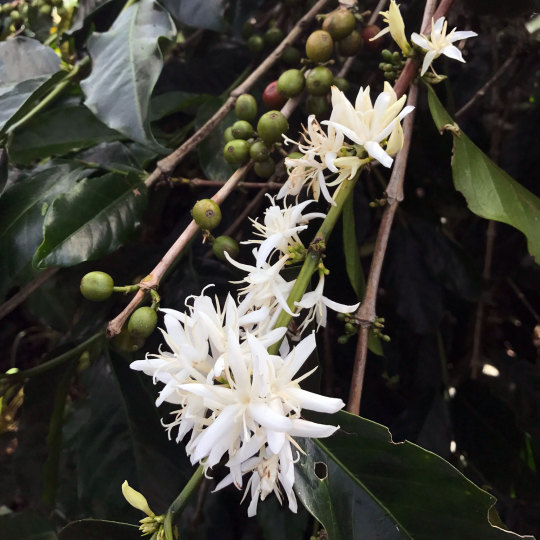
Known for its resilience to coffee leaf rust and characteristic bold cup profile that makes an excellent complement to high acidity coffees, TimTim has become a preferred ‘parent’ plant for many other hybrids. It’s genetic resistance to disease is widely acclaimed by scientists, botanists and producers who regard it as a hardy and a high yielding crop.
Geologist and Founder of Pinesia coffee estate, Gary Sjafwan, began cultivating Hibrido de Timor himself when he was researching the geological features of Java nine-years ago: “I love nature”, he says. “I like to experience the forest, go hiking, and see how growing coffee is also making a better life for the earth. I started planting coffee in Java and Sumatra and was interested in not just the coffee itself; but how the culture in every region is different, just as the character of the people and the way farmers grow it is also different”.
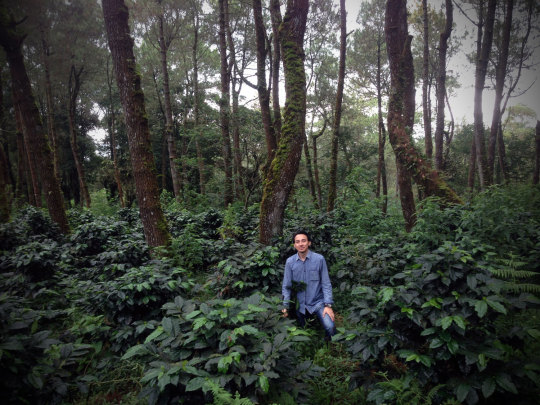
The estate now comprises of more that 800 smallholder farmers across Sumatra, Aceh and West Java who have joined forces to achieve greater economies of scale as they seek to access specialty coffee markets worldwide under the umbrella of Pinesia Family Estates.
As demand for Hybrido de Timor outside Indonesia increases, their production of 700 tons in Sumatra is now dedicated to the sole cultivation of TimTim for both commercial and specialty customers. Although the bulk of their shade grown coffee is washed, fermented for ten hours and double soaked, they also have the facility to offer natural process sun-dried coffee in small quantities.
This stable supply of coffee cherry has provided a bedrock for the estate to branch out into further research and development into other varietals such as the Dutch-introduced ancestral Typica, Maragogype, including the addition of a nursery dedicated to the production of Geisha. Gary says that their research facility on the 100-hectare farm in Flores is a planned effort to meet demand in the specialty coffee segment across Indonesia and further afield.
“The specialty market in Indonesia is increasing but our main target is to sell coffee outside of the country. For commercial markets, we want to keep our our quality stable as we expand the farm into specialty areas,” Gary adds.
A chance meeting with algrano at World of Coffee in Budapest earlier this year has already born fruit and a promising partnership now means that the Estate’s Typica and TimTim, amongst other varietals, is now directly available to specialty coffee roasters in Europe. It is also the first offering of coffee from Indonesia on the transparent trade platform.
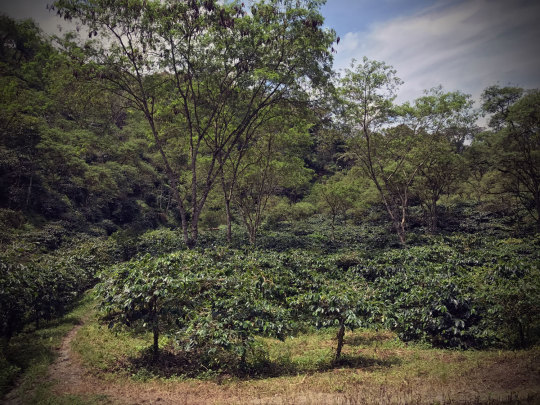
This new offering – a quality product of hundreds of smallholder growers represented by Pinesia Family Estate – is yet another opportunity for producers to command a fair price for their coffee that is helping to support their families and communities: “We are not just growing the coffee itself, we are growing the community in the coffee farms – it is the farmer and his family that is our biggest asset”, insists Gary before confidently adding: “Indonesia is a big country and we have a lot of different flavours depending on the character of each region. There is no good or bad coffee, mistakes only happen in the process after harvest. That is why we are taking steps to be consistent in our processing to bring out the unique character of our coffee in every cup”.
algrano coffee in the hopper
- Ref: ID-1
- Producer: Pinesia Farm
- Country: Indonesia
- Varietal: Timtim
- Process: Fully Washed
- Flavours: Sweet & sugary, Nut, Floral, Citrus, Chocolate, Stone fruit

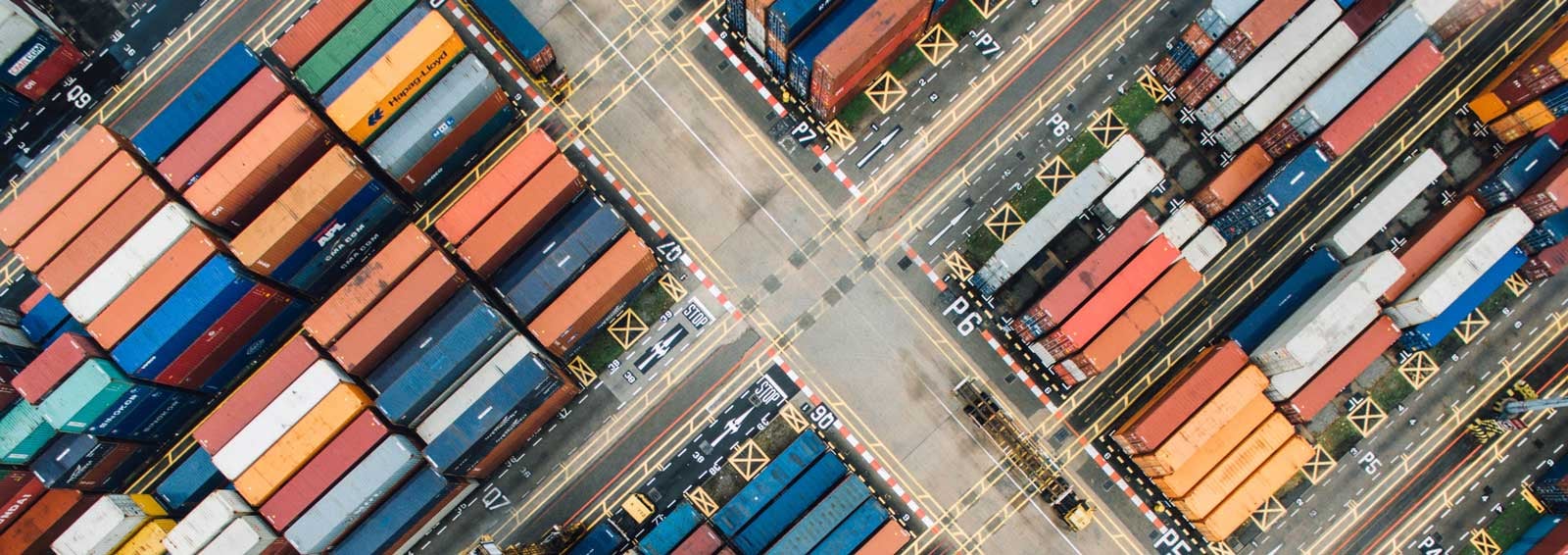
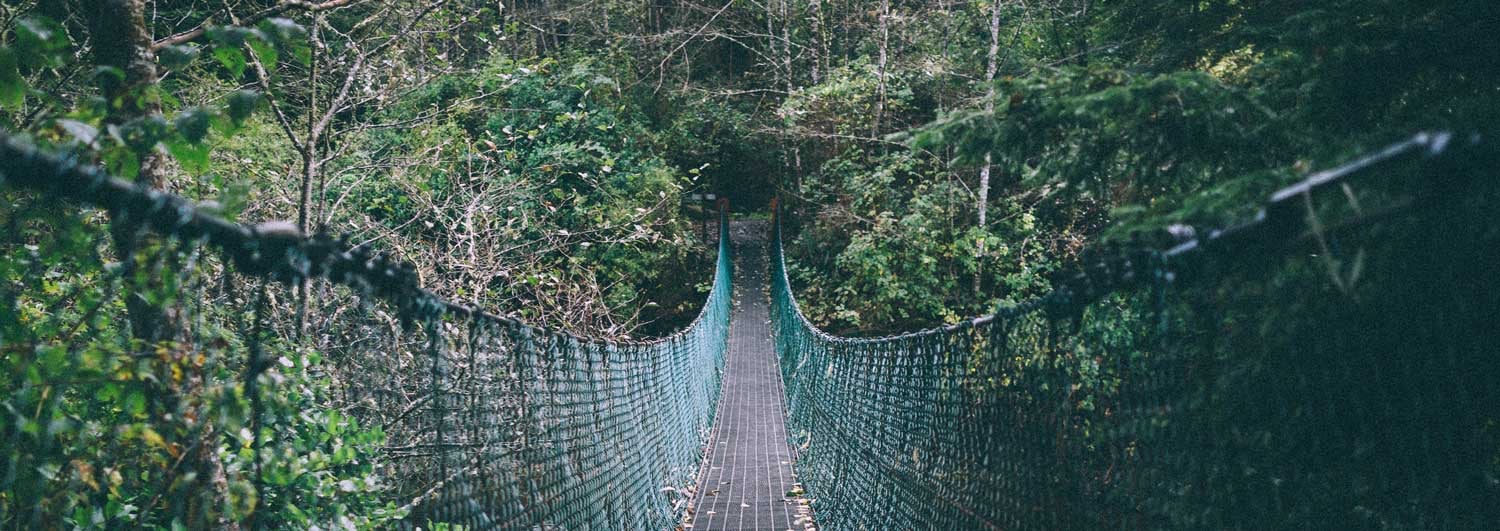

Let Us Know What You Thought about this Post.
Put your Comment Below.